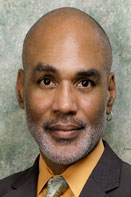

Ending AIDS in Black America: Step Five: Retooling AIDS Organizations
(This is the final in our five-part series about ending the AIDS epidemic in Black America)
By Phill
Black AIDS organizations need to retool themselves for a rapidly evolving AIDS landscape.
Communities will always remain central to our ability to end AIDS, but most of our community-based organizations have focused their expertise on behavioral interventions only. Few have meaningful scientific expertise, and fewer still actually deliver health care services.
With biomedical tools rapidly becoming critical to our AIDS response and the Affordable Care Act (Obamacare) poised to dramatically alter the terrain for health and social services, many AIDS organizations risk becoming wholly irrelevant. Fortunately, some visionary organizations have already begun to retool.
Harlem United, (HU) for example, has actively worked to adapt to a dynamic environment, readying itself for state Medicaid reforms and shifts in the nation’s healthcare systems. HU began as a small community support organization, but today it is a Federally-Qualified Health Center with 3000 patients that connects the dots between medical care and social services.
In Washington, D.C., the Community Education Group (CEG), a small not-for-profit organization that serves a predominantly poor Black neighborhood, offers HIV tests and a whole lot more. Of the people CEG tests who turn out to be positive, 95 percent are linked, re-linked, or confirmed to be receiving HIV care and treatment services.
Rather than giving individuals a paper referral, CEG provides its clients an immediate personal escort — and, if needed, financial incentives — to go to a medical provider. CEG uses new technology to conduct risk assessments, and enroll community members in DC’s free insurance program and/or Medicaid. They also provide patient follow-up, such as text-message reminders at medication times and for medical appointments.
The Black Treatment Advocates Network (BTAN) is a network of Black Activist groups in 12 cities across the country working to educate themselves and their communities about the science of HIV. BTAN believes when people understand—really understand—the science of HIV/AIDS, and how to use that knowledge, they are better able to protect themselves from infection, more likely to get tested and get linked to care early, have a better chance of staying in care and adhering to their regimens, and are better positioned to influence community norms and public policy.
Harlem United, The Community Education Group and the Black Treatment Advocates Network are three examples of what effective AIDS service organizations are going to need to look like in the future. The change is not coming, it is here, and many Black AIDS organizations risk becoming wholly irrelevant. But here is the rub; we can’t end the AIDS epidemic without a diverse health-delivery system. We will need robust, trained and effective Black AIDS service organizations in order to succeed. Historically gay AIDS organizations, health departments and newly anointed medical providers will not get the job done. Here again our success depends on collaboration, partnerships and synergy.
We have the tools to end AIDS. We can do it, but we haven’t yet. We might be on the eve of the end, but if we don’t act now, it is going to be a very long night.
Take care of yourself and your blessings.
Yours in the struggle,
Phill


Be the first to comment